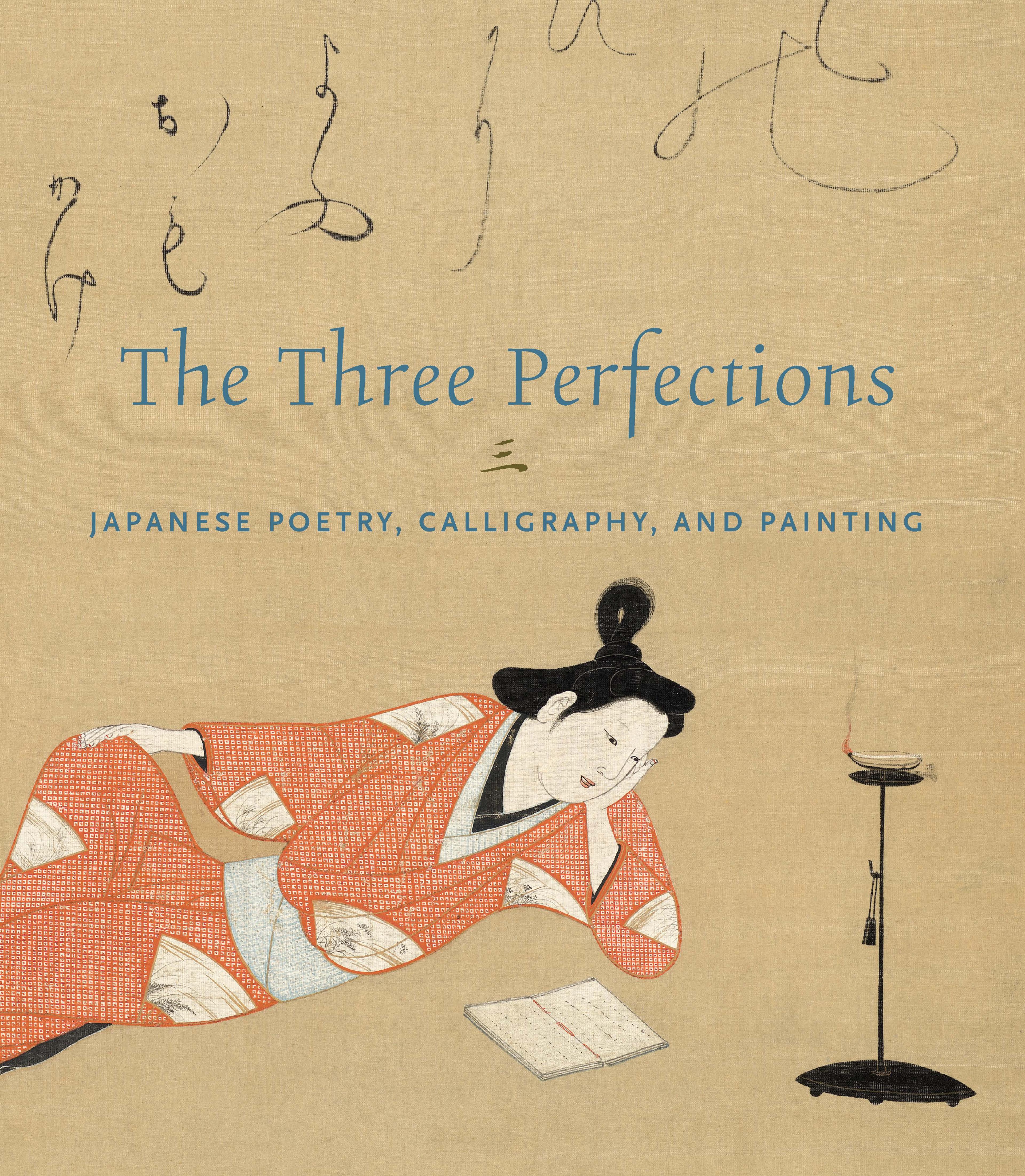A Poem of Lament, one of the “Uzura Fragments” (Uzura-gire)
With eye-catching variations in ink density and elongated vertical strokes that indicate a rapidly moving yet controlled brush, this transcription from the Collection of Poems Ancient and Modern (Kokin wakashū) displays the shift toward expressive and experimental calligraphy that occurred by the thirteenth century.
The poem, by the courtier-poet Ki no Mochiyuki, reads:
花よりも 人こそあたに なりにけれ
いづ[れ]をさきに こひむとかみし
Even more so than cherry blossoms,
a loved one’s life is transient.
Alas, never did I expect
to muse over which of them
I would have to mourn first.
—Trans. John T. Carpenter
The poem, by the courtier-poet Ki no Mochiyuki, reads:
花よりも 人こそあたに なりにけれ
いづ[れ]をさきに こひむとかみし
Even more so than cherry blossoms,
a loved one’s life is transient.
Alas, never did I expect
to muse over which of them
I would have to mourn first.
—Trans. John T. Carpenter
Artwork Details
- 伝藤原顕輔筆 『古今和歌集巻』 鶉切
- Title: A Poem of Lament, one of the “Uzura Fragments” (Uzura-gire)
- Artist: Traditionally attributed to Fujiwara Akisuke (Japanese, 1090–1155)
- Period: Kamakura period (1185–1333)
- Date: 13th century
- Culture: Japan
- Medium: Section of a page from a bound booklet mounted as a hanging scroll; ink on paper patterned with mica powder
- Dimensions: Image: 9 7/16 × 2 5/8 in. (24 × 6.7 cm)
Overall with mounting: 48 3/4 × 11 3/8 in. (123.8 × 28.9 cm)
Overall with knobs: 48 3/4 × 13 1/4 in. (123.8 × 33.7 cm) - Classification: Calligraphy
- Credit Line: Mary and Cheney Cowles Collection, Gift of Mary and Cheney Cowles, 2023
- Object Number: 2023.583.2
- Curatorial Department: Asian Art
More Artwork
Research Resources
The Met provides unparalleled resources for research and welcomes an international community of students and scholars. The Met's Open Access API is where creators and researchers can connect to the The Met collection. Open Access data and public domain images are available for unrestricted commercial and noncommercial use without permission or fee.
To request images under copyright and other restrictions, please use this Image Request form.
Feedback
We continue to research and examine historical and cultural context for objects in The Met collection. If you have comments or questions about this object record, please contact us using the form below. The Museum looks forward to receiving your comments.
